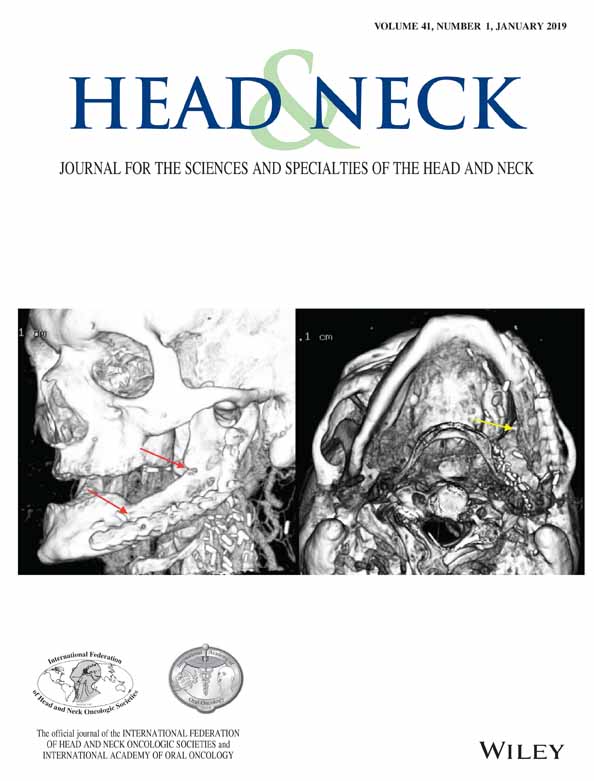Compartmental surgery for oral tongue and floor of the mouth cancer: Oncologic outcomes
Abstract
Background
Oral tongue/floor of mouth squamous cell carcinoma (OTFMSCC) with a depth of invasion (DOI) > 10 mm involves extrinsic muscles and lingual neurovascular/lymphatic bundles. “Compartmental” hemiglossopelvectomy (CHGP) was developed to improve loco-regional control by “en bloc” removal of tumor and its pathways of spread.
Methods
We conducted a retrospective observational study on 45 CHGPs performed at a single institution for OTFMSCC with a DOI > 10 mm at CT/MR. Group A (n = 35) included naïve patients, and group B (n = 10) recurrent cancers. We evaluated 2-year overall survival (OS), disease-free survival (DFS), local control (LC), and loco-regional control (LRC).
Results
Two-year OS, DFS, LC, and LRC were 80%, 91%, 100%, and 94% for group A, and 27%, 26%, 67%, and 36% for group B, respectively. Salvage surgery and positive margins were significantly associated with worse prognosis.
Conclusion
CHGP is a reliable oncologic approach in primary surgery for advanced OTFMSCC. In recurrent cancers, survival remains poor.
CONFLICT OF INTERESTS
None declared.




